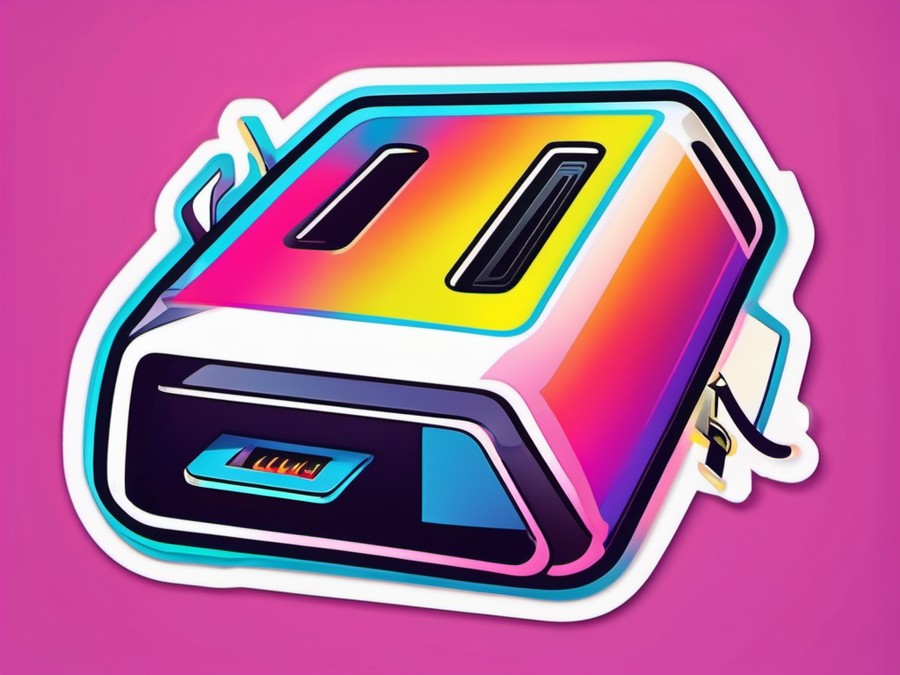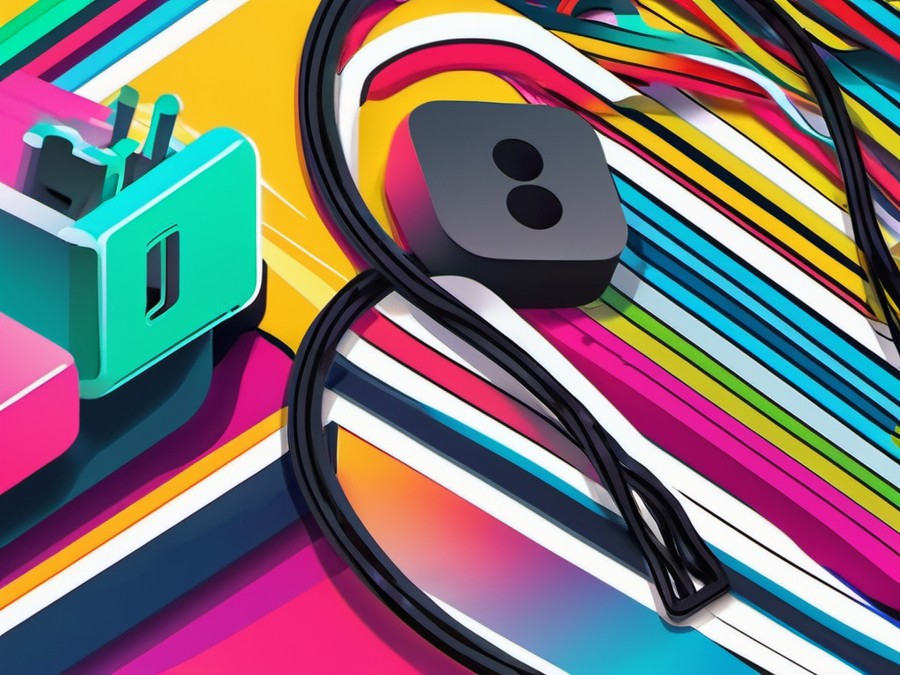· Charlotte Will · Chargers & Cables · 6 min read
What is a USB-C Charger and How Does it Differ from Others?
Discover the benefits and advantages of USB-C chargers over other types. Learn about power delivery, fast charging, and universal compatibility. Upgrade your tech experience with the future of charging technology today!

Understanding USB-C: The Basics
What is a USB-C Charger?
Imagine the frustration of plugging in your charger countless times, only to find it doesn’t fit properly. That was the reality with older USB connectors. Enter USB-C, a game-changer in the world of charging and data transfer. A USB-C charger is a power adapter designed with a USB Type-C connector, which is reversible and capable of delivering high power outputs. This makes it a versatile choice for modern devices.
The Evolution of USB Connectors
USB technology has evolved significantly since its inception. We’ve gone from the bulky USB-A to the sleek and compact USB-C. This journey has led to more efficient power delivery, faster data transfer speeds, and better durability. If you’re curious about the differences between USB-C hubs and other types, check out this article.
The Anatomy of a USB-C Charger: What Makes it Different?
The Reversible Port
One of the most notable features of a USB-C charger is its reversible port. Unlike older connectors, there’s no right or wrong way to plug it in. This small design tweak saves a lot of hassle and prevents wear and tear on the connector.
Power Delivery (PD) and Fast Charging
USB-C chargers support Power Delivery (PD), a technology that allows devices to request the exact amount of power they need. This not only charges your device faster but also ensures it receives the precise voltage and current necessary for efficient charging. For a deeper dive into the benefits of PD, read this article.
Data Transfer Speeds
While we primarily discuss charging here, it’s worth mentioning that USB-C also offers blazing fast data transfer speeds. With Thunderbolt 3 support, you can transfer large files in a fraction of the time it would take with older USB standards.
USB-C vs Other Chargers: A Closer Look
USB-C vs USB-A: The Old and the New
Port Size and Compatibility
USB-A ports are larger, and the connectors are not reversible. This means you have to align the connector correctly every time, which can be frustrating. USB-C ports are smaller and reversible, making them far more user-friendly.
Power Output and Charging Speed
USB-A chargers have slower charging speeds compared to USB-C. While they may still work with many modern devices, the experience isn’t as seamless or fast.
USB-C vs MicroUSB: The Micro and the Mighty
Port Size and Durability
MicroUSB connectors are quite fragile. The tiny pins inside can bend or break, and aligning them correctly can be difficult. USB-C ports are more robust due to their design and size.
Data Transfer Speeds
MicroUSB supports slower data transfer rates compared to USB-C. This is especially noticeable when transferring large files or using data-intensive applications.
USB-C vs Lightning: The Apple Factor
Device Compatibility
Lightning connectors are specific to Apple devices, while USB-C is more universal. This means a USB-C charger can work with a wide range of devices from different manufacturers.
Power Output and Charging Speed
Both USB-C and Lightning support fast charging, but the universality of USB-C makes it a more versatile choice. If you’re an Apple user looking to maximize your travel experience, check out this guide.
Why USB-C is the Future of Charging
Universal Compatibility: One Charger to Rule Them All
One of the biggest advantages of USB-C is its universal compatibility. With a single USB-C charger, you can charge all sorts of devices—from smartphones to laptops. This reduces clutter and makes life easier, especially for those who carry multiple devices.
Faster Charging and Data Transfer Speeds
USB-C supports much faster charging and data transfer speeds than earlier USB standards. This is thanks to technologies like Power Delivery (PD) and Thunderbolt 3, which allow for high-speed data transfer and fast charging.
Durability: The Tale of the Connector that Keeps Going
USB-C connectors are designed to be more durable. The reversible port and sturdy design mean they can withstand more wear and tear, ensuring a longer lifespan for your chargers and devices.
Choosing a USB-C Charger: What to Look For
Power Output (Wattage)
When choosing a USB-C charger, consider the power output or wattage. Higher wattages mean faster charging but may not be necessary for all devices. For laptops, you’ll typically need a charger with 45W or higher output. For smartphones and tablets, something around 18W to 30W should suffice.
Fast Charging Technology
Look for chargers that support fast charging technologies like Power Delivery (PD) or Qualcomm Quick Charge. These can significantly reduce the time it takes to charge your devices.
Compatibility and Safety Features
Ensure the charger is compatible with your devices. Many modern devices, especially those from Apple and Google, come with USB-C ports. Also, look for safety features like overvoltage protection to prevent damage to your devices.
How to Use a USB-C Charger with Older Devices
Adapters: The Bridge Between the Past and the Future
If you have older devices with USB-A or microUSB ports, you can use adapters to connect them to a USB-C charger. These adapters allow you to leverage the power and speed of USB-C with your older devices.
Compatibility Check: Will it Work with My Device?
Before purchasing, make sure to check the compatibility of your charger and devices. Many device manufacturers provide lists or guidelines on their websites to help you make the right choice.
Conclusion
In conclusion, a USB-C charger is not just an upgrade; it’s a leap forward in charging technology. With faster speeds, universal compatibility, and durability, it’s no wonder USB-C has become the standard for modern devices. No matter what device you use, a USB-C charger can simplify your life and keep your devices powered up.
FAQs
Can I use a USB-C charger with my iPhone? While iPhones historically used Lightning connectors, newer models are transitioning to USB-C. For older models, you may need a Lightning to USB-C cable or adapter.
What is the difference between a normal USB-C cable and a charging cable? A standard USB-C cable can transfer data, but a charging cable is optimized for delivering power efficiently. Charging cables often support Power Delivery (PD) and other fast charging technologies.
Can I use my laptop’s USB-C charger to charge my phone? Yes, you can use your laptop’s USB-C charger to charge your phone. However, ensure that both devices are compatible with the power output of the charger to avoid any damage.
Why is my USB-C charger not charging my device as fast as I expected? Several factors could affect charging speed, including the power output of your charger, compatibility issues, or using a cable that doesn’t support fast charging.
Is it safe to leave my USB-C charger plugged in all the time? Yes, it’s generally safe to leave a USB-C charger plugged in. Modern chargers are designed with safety features to prevent overcharging and other issues. However, it’s always a good idea to follow safety guidelines provided by the manufacturer.




